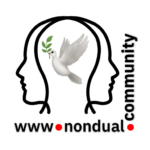Disclaimer: Welcome to the laboratory, explore with an open heart ❤️
Compassion

Posted by Irena:
Irena:
Based on our discussion on last Sunday,
I wanted to share this passage I just ran into in
Depending on No Thing
by Robert Saltzman.
It is a point of view on only, and depending on the day it can sound to me true or I can lean more on the opposite side and view the world from a different perspective… anyways, thought I would share:
Q: But what about compassion for others? I feel that it is easier to deal with my own problems and my own pain. In that sphere, I feel somewhat equipped. But when I see someone around me who is suffering… while of course in the end it’s me who feels bad about it because those are my own emotions… [long, long pause]
A: Compassion may feel good and yet be entirely misguided. Compassion is one of those buzz words, you know. Nobody wants to lack compassion. But compassion without wisdom can do more harm than good. Suppose you come upon an accident victim lying in the highway. Hearing her cries of pain, you might want to pick her up and drive her to the hospital. That might feel compassionate, but would be all wrong. The correct action—the only proper action—is to leave her lying there and call for the experts who know how to move severely injured people. You can go through this world caring about other people’s feelings and all that, and trying to do good. And your involvement might be helpful to a certain person at a certain time but unhelpful or even damaging to another person at another time. And knowing the difference is not always easy. You hit on something vital in saying that when you react to the suffering of others, “It’s me who feels bad about it because those are my own emotions.” Yes. That is a key point.
And if your way of dealing with those emotions—which are your emotions—involves being “helpful,” perhaps by advising the other person what she needs or should do next, that approach may do more harm than good, creating confusion in your mind as well as in the mind of the person you aim to help. The role of rescuer is fraught. It’s a lonely, often confusing place. Whatever you feel right now is yours alone. It doesn’t belong to anyone else. You are the one who knows the fullness of those feelings—their intricacies and imponderables. You are the only witness. No one else feels what you feel. You can talk about what you feel, or dance it, or paint it, or sing it, or play it on your guitar, but your emotional depths cannot be known by anyone but you. In that, each of us is totally alone. So compassion must begin with self-compassion. I mean regarding yourself, in your pain, your anxiety, your woundedness, and your ultimate aloneness, with love and non-judgmental acceptance. Then, if you feel moved to intervene in the woundedness of another human being, you may be able to intervene with wisdom.
Depending on No Thing
R. Saltzman

Leave a Reply